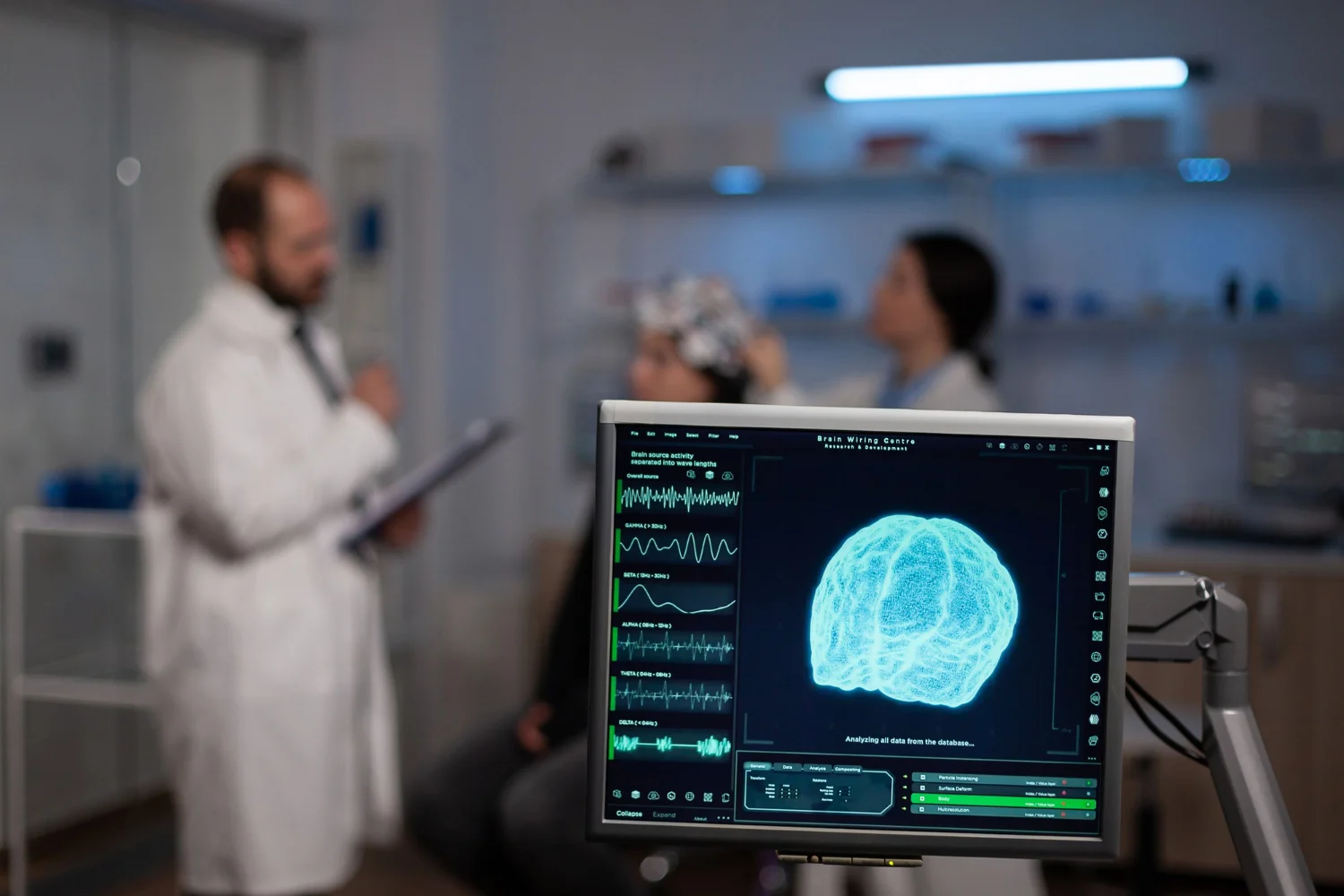What Is Acid Reflux?
Category: General medicine
Acid reflux is a common digestive condition where stomach acid flows back into the esophagus, causing irritation and discomfort. This backward flow occurs when the lower esophageal sphincter (LES), a ring of muscle that acts as a valve between the stomach and esophagus, weakens or relaxes abnormally. The acid irritates the lining of the esophagus, leading to symptoms such as heartburn, regurgitation, and sometimes difficulty swallowing.
At Lokmanya Hospitals, we understand how acid reflux can affect your daily life. Our expert gastroenterologists provide accurate diagnosis and personalized treatment plans to help you manage and overcome this condition effectively. As one of the best hospitals in Pune for digestive treatment, Lokmanya offers a holistic approach to your health, ensuring that acid reflux doesn’t impact your overall well-being.
Understanding Acid Reflux: What Happens in Your Body?
Normally, the LES opens to allow food into the stomach and closes to prevent stomach acid from escaping. When this valve malfunctions, acid and sometimes stomach contents flow back up into the esophagus, a process called gastroesophageal reflux. Frequent acid reflux episodes may lead to gastroesophageal reflux disease (GERD), a more serious and chronic form of acid reflux.
Acid reflux is not just uncomfortable; if left untreated, it can cause complications such as esophagitis (inflammation of the esophagus), ulcers, and even increase the risk of Barrett’s esophagus, a precancerous condition.
Common Symptoms of Acid Reflux
Recognizing acid reflux symptoms early helps in timely management. Here are the most commonly reported signs:
- Heartburn: A burning sensation in the chest, often after eating or at night.
- Regurgitation: A sour or bitter taste caused by stomach acid coming back into the throat or mouth. Difficulty swallowing (dysphagia).
- Chest pain: Sometimes mistaken for heart problems.
- Chronic cough, hoarseness, or sore throat: Caused by acid irritating the throat. Feeling of a lump in the throat or frequent throat clearing.
Why Does Acid Reflux Occur?
Several factors can contribute to acid reflux, including lifestyle habits, medical conditions, and anatomical issues. Here’s a detailed look:
1. Weak or Relaxed Lower Esophageal Sphincter (LES)
The LES is supposed to close tightly after food passes into the stomach. If it weakens or relaxes inappropriately, acid can leak back into the esophagus.
2. Hiatal Hernia
A hiatal hernia occurs when the upper part of the stomach pushes through the diaphragm into the chest cavity, affecting LES function and causing acid reflux.
3. Obesity
Excess body weight increases abdominal pressure, which can push stomach contents back into the esophagus.
4. Dietary Triggers
Foods and drinks such as spicy foods, caffeine, alcohol, chocolate, fatty meals, and carbonated beverages can relax the LES or increase acid production.
5. Smoking
Smoking weakens the LES and reduces saliva production, which helps neutralize acid.
6. Pregnancy
Hormonal changes and increased abdominal pressure during pregnancy can contribute to acid reflux.
7. Medications
Certain medications like aspirin, ibuprofen, muscle relaxants, and blood pressure drugs can trigger reflux.
When Should You See a Doctor for Acid Reflux?
Most mild cases of acid reflux can be managed with lifestyle changes and over-the-counter medications. However, you should seek medical advice if you experience:
- Frequent or severe heartburn more than twice a week.
- Difficulty swallowing or persistent hoarseness.
- Unexplained weight loss.
- Chest pain not related to the heart.
- Symptoms that persist despite over-the-counter treatments.
At Lokmanya Hospitals, our gastroenterology specialists use advanced diagnostic tools like endoscopy and pH monitoring to assess the severity of your acid reflux and recommend the most effective treatment.
How Is Acid Reflux Diagnosed?
Diagnosis starts with a detailed medical history and symptom review. Your doctor may perform several tests, including:
- Upper Endoscopy: A thin, flexible tube with a camera examines the esophagus and stomach lining for inflammation or damage.
- Esophageal pH Monitoring: Measures acid levels in the esophagus over 24 hours.
- Esophageal Manometry: Assesses the function of the LES and esophageal muscles.
- Barium Swallow X-ray: Helps visualize the esophagus and stomach structure.
Lokmanya Hospitals prides itself on offering state-of-the-art diagnostic facilities to ensure an accurate diagnosis for the best possible treatment outcomes.
Treatment Options for Acid Reflux
The treatment approach depends on the severity and frequency of your symptoms. Options include:
1. Lifestyle Modifications
- Avoid trigger foods and drinks.
- Eat smaller, more frequent meals.
- Avoid lying down immediately after eating.
- Maintain a healthy weight.
- Quit smoking and reduce alcohol intake.
- Elevate the head of your bed to prevent nighttime reflux.
2. Medications
- Antacids: Neutralize stomach acid and provide quick relief.
- H2 Receptor Blockers: Reduce acid production.
- Proton Pump Inhibitors (PPIs): More potent acid blockers for healing esophageal damage.
- Prokinetics: Help strengthen the LES and improve stomach emptying.
3. Surgery
Surgery is considered when medications and lifestyle changes fail to control symptoms. The most common procedure is fundoplication, which reinforces the LES by wrapping the stomach around it.
Lokmanya Hospitals is renowned for offering minimally invasive laparoscopic surgery and the best digestive care under one roof, ensuring comprehensive patient care.
Why Choose Lokmanya Hospitals for Acid Reflux Treatment?
At Lokmanya Hospitals, we combine cutting-edge technology with compassionate care to provide the best treatment for acid reflux. Our team of experienced gastroenterologists offers personalized treatment plans tailored to your unique condition. From advanced diagnostics to minimally invasive surgeries, Lokmanya ensures a comfortable and speedy recovery.
Lokmanya Hospitals is recognized for its comprehensive healthcare services. Our integrated approach means patients receive holistic care, addressing all factors affecting their health under one trusted roof.
Conclusion
Acid reflux is a manageable condition, but it requires timely attention and appropriate treatment to prevent complications. By understanding the causes, symptoms, and treatment options, you can take control of your digestive health. Whether through lifestyle changes, medication, or surgery, expert care at Lokmanya Hospitals can help restore your comfort and quality of life.
If you experience frequent heartburn or other reflux symptoms, don’t wait. Consult Lokmanya Hospitals, one of the best hospitals for digestive treatment, to get a precise diagnosis and effective treatment plan tailored for you.
Frequently Asked Questions (FAQs)
Q1: Can acid reflux cause other health problems?
Yes, chronic acid reflux can lead to esophagitis, strictures, Barrett’s esophagus, and increased risk of esophageal cancer.
Q2: How long does acid reflux treatment take?
With proper management, symptoms can improve within weeks. Severe cases may require long-term treatment.
Q3: Can children have acid reflux?
Yes, acid reflux can affect people of all ages, including infants and children.
Q4: What lifestyle changes help reduce acid reflux?
Avoiding trigger foods, losing weight, quitting smoking, eating smaller meals, and not lying down after eating are effective strategies.
Previous blog







